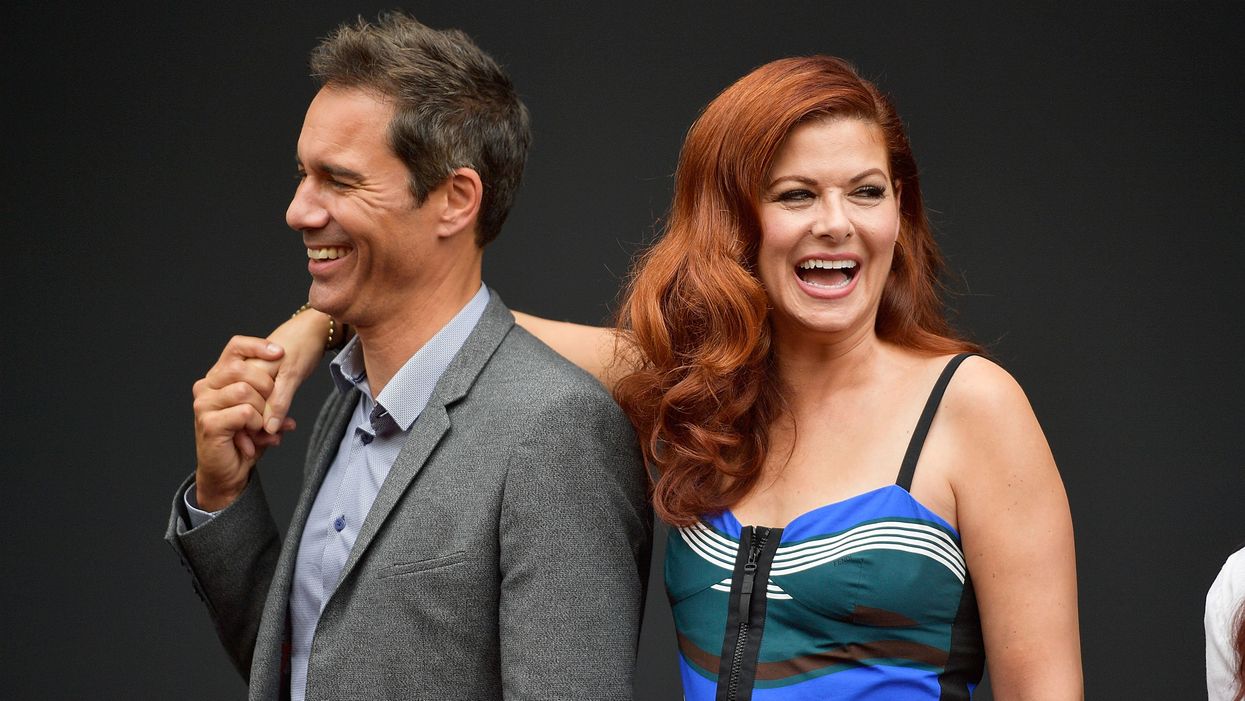
Photo by Chance Yeh/WireImage

Backfired
Actor Eric McCormack says he doesn't actually support blacklisting his fellow entertainers despite issuing remarks appearing to the contrary just days ago.
Last week, the "Will & Grace" actor responded to a report by The Hollywood Reporter, which revealed an upcoming Beverly Hills fundraiser for President Donald Trump's reelection bid.
McCormack tweeted at the news outlet, "Hey, @THR, kindly report on everyone attending this event, so the rest of us can be clear about who we don't want to work with. Thx." His co-star, Debra Messing, also shared similar sentiments on social media.
McCormack attempted to clarify his remarks on Tuesday and told his Instagram followers that he doesn't support blacklists.
He wrote, "I want to be clear about my social media post from last week, which has been misinterpreted in a very upsetting way. I absolutely do not support blacklists or discrimination of any kind, as anyone who knows me would attest. I'd simply like to understand where Trump's major donations are coming from, which is a matter of public record."
"I am holding myself responsible for making educated and informed decisions that I can morally and ethically stand by and to do that, transparency is essential," he added.
Users have liked McCormack's post more than 18,000 times at the time of this writing.
McCormack received a heavy amount of backlash from both the left and the right after his initial remarks.
"The View" co-host Whoopi Goldberg criticized the idea of a blacklist on Tuesday's show.
"Listen, the last time people did this, people ended up killing themselves," Goldberg said about such tweets.
"This is not a good idea, OK?" she added. "Your idea of who you don't want to work with is your personal business. Do not encourage people to print out lists because the next list that comes out, your name will be on it and then people will be coming after you.
"We had something called a blacklist and a lot of really good people were accused of stuff," she continued, referring to the so-called Red scare and Hollywood blacklists that began in the late 1940s and continued until 1960.
"Nobody cared whether it was true or not. They were accused. And they lost their right to work. You don't have the right! In this country, people can vote for who they want to," she added.
"That is one of the great rights of this country," she said.